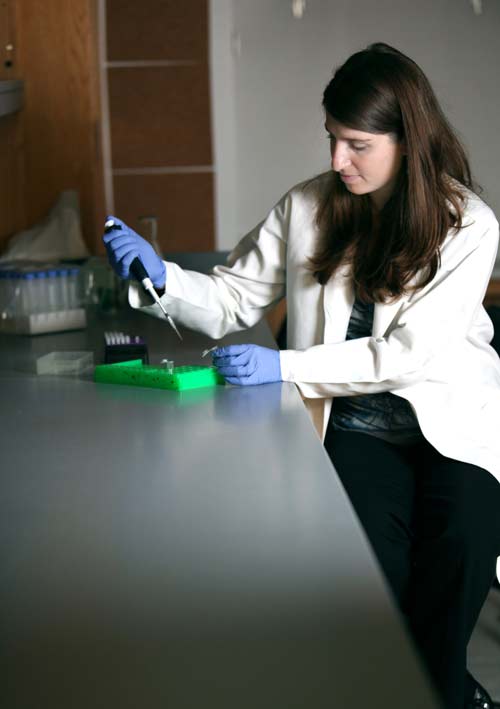
For decades, researchers have struggled to identify the root causes behind racial disparities in health. Amy Non, assistant professor of anthropology, takes a multidisciplinary approach.
A molecular anthropologist specializing in epigenetics, the study of how environment and behavior affect the expression of genes, her work integrates genetics, anthropology and public health.
For example, why are African Americans at greater risk for many chronic diseases? “We don’t really know what’s causing it—whether it’s their genetic ancestry or whether it’s something about their social or cultural environment,” Non said. She has found no evidence that African genetic ancestry plays a role and is now trying to identify psychosocial mechanisms—such as stress—that may contribute to these disparities.
Stress triggers a release of hormones that can lead to inflammation or dysregulation of other biological processes, she said. Prolonged exposure to stress can permanently interfere with the genes that regulate these hormones, which can have long-term consequences on a person’s health.
Non explained that cardiometabolic diseases, such as heart disease, diabetes and hypertension, are particularly affected by stressors in the environment. The changes wrought by stress not only may become permanent in an individual, but also could potentially be passed down to his or her offspring.
“I’m also really interested in a theory called ‘developmental origins of health and disease,’” she said. “That’s the idea that there are certain periods during early childhood, and also during pregnancy when the fetus is developing, when a person is particularly vulnerable to environmental influences.”
Non is currently wrapping up research on the methylation patterns of DNA—essentially, the way DNA responds to stress—in children born to mothers with depression. She is about to begin studying those patterns in children raised in Romanian orphanages, looking for differences between these institutionalized children and children raised in stable home settings.
An assistant professor of anthropology and medicine, health and society, Non came to Vanderbilt from Harvard where she had a Robert Wood Johnson Foundation Health and Society Scholars postdoctoral fellowship. She is teaching for the first time and is very impressed with her Vanderbilt students. “The students are just really enthusiastic and hardworking,” she said.
She’s also received a warm welcome from her lab mates in Light Hall, who have been generous with advice and are even loaning her equipment while she gets her own lab set up. “[rquote]It’s just a really collegial environment,” she said. “I love how collaborative it is here.”[/rquote]
View the complete list of new university faculty for 2012-13.
View the complete list of new medical faculty for 2012.